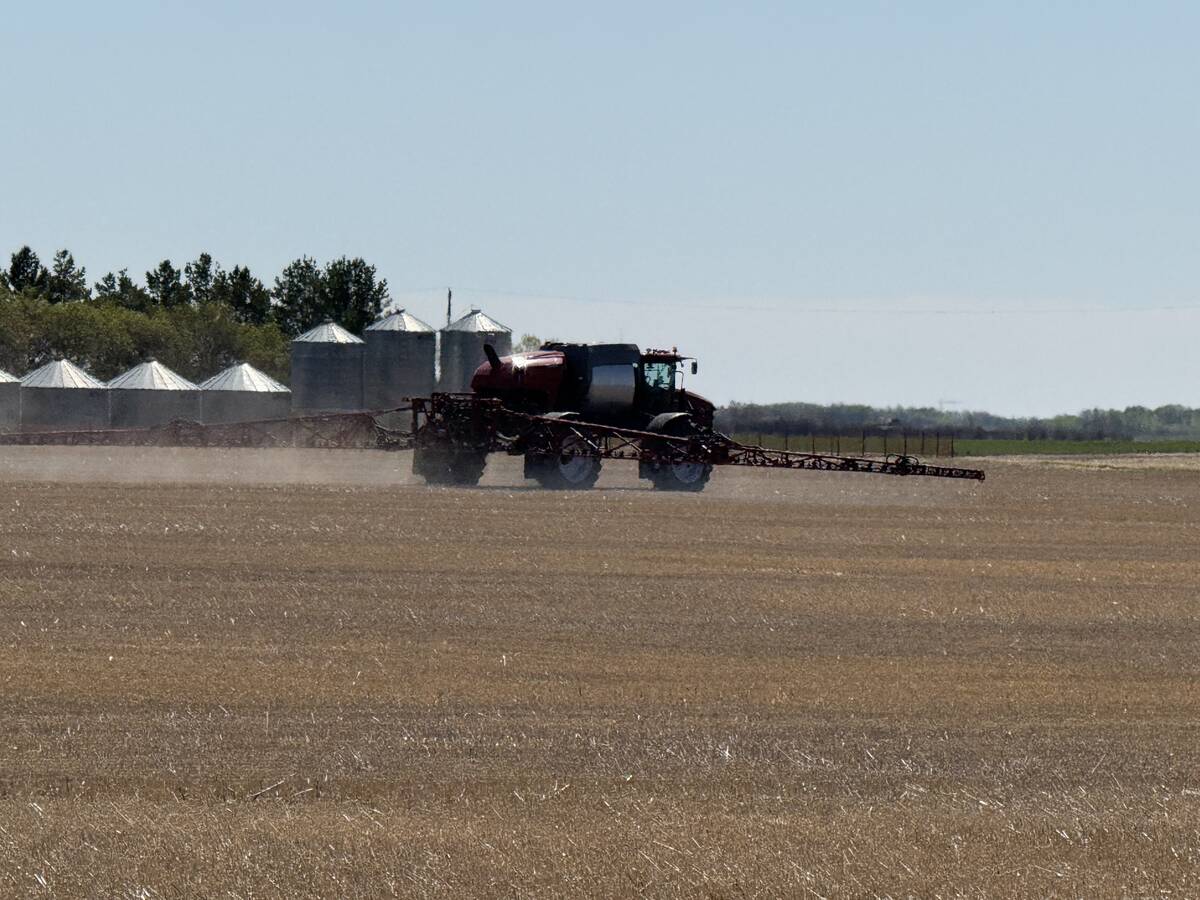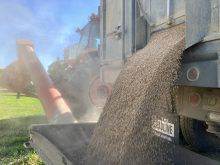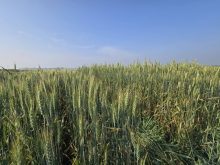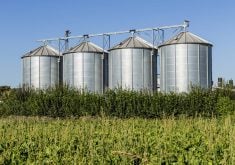The federal government is putting $13 million into the fight against Ug99 – a new strain of wheat stem rust that could decimate world wheat crops.
“Canada is a world leader in this kind of research,” said Agriculture and Agri-Food Canada Minister Gerry Ritz in a release. “Our scientists are doing important work to help the world’s wheat crops, but first and foremost, investments like this one ensure that we have Canadian solutions for Canadian farmers, should the fungus ever reach us here.”
Read Also

The looming threat of HPPD herbicide resistance
Group 27 herbicides are still working in Manitoba, so far, but weeds are beating them in other parts of North America, plus we have other resistance worries.
This $13-million investment will be used to develop new varieties of wheat resistant to this fungus, an international effort of which Canadian researchers are at the forefront. In addition to developing resistant varieties, the Canadian effort will increase understanding of the biology of the fungus, while making a major contribution to international efforts to combat Ug99 worldwide.
This strain of wheat stem rust, known as Ug99, is not currently a threat to Canadian wheat crops, but the strain has been spreading slowly east across Africa, into Yemen and Sudan, a federal release says. The fungus is expected to reach Egypt, Turkey, the Middle East and India, and scientists agree that it is only a matter of time before Ug99 reaches the crops of North America.
BORLAUG PLEASED
Nobel Prize winner and chair of the Borlaug Global Rust Initiative, Norman Borlaug, commended the investment, calling it an “important action to protect the wheat crop in North America and worldwide.” He added that the investment “is a major step forward in our efforts to stem the global threat of wheat rust.”
The funding for this research work is from Growing Forward programming, under the Animal and Plant Health Research initiative. The program supports research projects that focus on emerging threats to the sector such as wheat rust and club root, and aims to develop risk mitigation strategies and measures to be adopted by the Canadian agri-food sector.
The $13-million investment builds on ongoing work on wheat rust (a major focus of the Cereal Research Centre, Winnipeg since 1916), with collaboration from Canadian universities, but with a new urgency to discover new sources of resistance, given the threat of Ug99.
INCREASED UNDERSTANDING
Most of the funds allocated to this initiative will be used to advance, through science, the understanding of the wheat stem rust variant Ug99 – a fungal pathogen causing a wheat disease that is spreading globally – which could impact the Canadian sector as current wheat varieties have limited resistance to this new fungus.
These funds will be used to research the genetics and pathology of Ug99 and similar virulent strains of wheat stem rust caused by the fungal pathogen Puccinia graminis. Furthermore, scientists will strive to develop new wheat germplasm that is resistant to Ug99 and other emerging pathotypes.
The funds will be used for research support, salaries of AAFC researchers dedicated to the project, and for infrastructure. While the initiative is four years in duration, preliminary research has already begun.
Ug99 was discovered in Uganda, Africa in 1999. The strain has spread slowly across east Africa and newer variants of Ug99 spread in January of 2006 to Yemen and north into Sudan. It is expected to spread to Egypt, Turkey and the Middle East and on to India.
NO RESISTANCE
Current Canadian and international commercial wheat varieties have little or no resistance to this rust species.
Stem rust is the most destructive disease of wheat. In 1954, it destroyed about 40 per cent of the Canadian spring wheat crop. AAFC plant breeding and pathology work provided resistant varieties that have protected the Canadian wheat industry from this threat since this last outbreak.
The International Maize and Wheat Improvement Centre (CIMMYT) is providing leadership for the Borlaug Global Rust Initiative that has concluded to date that only 0.3 per cent of the more than 44 million hectares planted with known varieties of wheat has moderate resistance to Ug99. AAFC scientists will continue to work within the international Global Rust Initiative to share information and exchange germplasm where appropriate. AAFC continues to work closely with the USDA on this issue.














